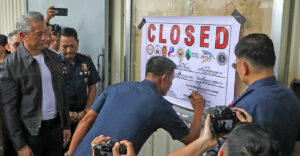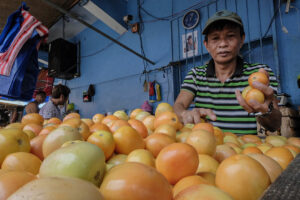On Nov. 5, President Ferdinand Marcos, Jr. enacted Executive Order 74, enforcing an immediate prohibition on offshore gaming, internet gaming, and other offshore gambling activities within the country. It sets forth directives to National Government agencies, local government units, and the private sector on how they can work together to eliminate this menace, the full effects of which have been realized in recent months.
The order also provides for the creation of two technical working groups (TWG). The TWG on Anti-Illegal Offshore Gaming Operations oversees the crackdown on illegal POGOs and IGLs (Philippine Offshore Gaming Operators and Internet Gaming Licensees) and other offshore gaming operators. Its main task is to investigate linked illegal activities and prosecute violators, among others.
Meanwhile, the TWG on Employment Recovery and Reintegration focuses on mitigating the ban’s effects on impacted industries through upskilling and reskilling programs to help displaced workers shift to better jobs.
One of the first actions that came out of the order was the deportation of illegal POGO workers, facilitated by the Bureau of Immigration and the Presidential Anti-Organized Crime Commission (PAOCC).
On Sunday, Dec. 15, the Philippine Amusement and Gaming Corp. (PAGCOR) officially canceled all licenses for POGOs.
Does all this mean we can rest easy, knowing that something has been decisively done about POGOs? Certainly not.
Listening to the news on the congressional hearings in the past few months, Filipinos have gotten a sense of the depth and magnitude of the illicit and illegal activities surrounding POGOs.
POGOs and IGLs have turned our country into a breeding ground for criminal activities. Among these are transnational crime, human trafficking, prostitution, and money laundering, among others.
POGO facilities have also been found near military bases. Consider this along with the discovery of uniforms of the People’s Liberation Army (PLA) in some POGO compounds, and it is not a stretch to conclude that there is espionage going on as well. Our fears of having our country’s defense capabilities compromised and our national security breached would not be unfounded. This is a monumental threat to our peace and order.
The POGO issue exposes the weaknesses and vulnerabilities of our systems, starting from some Filipino officials who style themselves as public servants but who in fact use their power to pave the way for the entry of foreign elements, all to serve their own selfish interests. In doing so, they put our nation’s well-being in danger and tarnish our reputation at a time when we are seeking investments to drive the growth and development of our economy. More importantly, these faux public servants put our national sovereignty at risk.
We must not allow these politicians to achieve their aims under the guise of public service. In the spirit of the upcoming elections, public opinion is a powerful force shaping the direction of our country. Filipinos must vote wisely for candidates who will defend the Philippines’ interests.
The coming elections in May 2025 should give Filipinos the opportunity to take a decisive position against pro-China candidates. Imagine, if these were to be given the chance to hold office, they would again use the advantages of their position to facilitate the entry and stay of other countries’ interests that are detrimental to our own.
Thus far, survey figures appear encouraging in this respect. Seven out of 10 Filipinos will not support pro-China candidates in the 2025 national elections, according to the latest Pulse Asia survey, commissioned by the Stratbase Group. This prevailing view is driven by both patriotic sentiment and a desire for leaders who will prioritize the Philippines’ long-term security and prosperity.
This is congruous with another Pulse Asia survey, also commissioned by Stratbase, in September. It revealed that 99% of Filipinos express distrust toward China. This reflects the strong desire of the Filipino people to resist foreign influence and stand firm in defense of our sovereignty.
But the elections are not the only way we can protect our country from POGOs and similar attempts. Outside of the polling booth, we can address our vulnerability to foreign syndicates and corrupt officials in collaboration with the honest and genuine elements in government, the private sector, civil society, and our fellow citizens.
For example, we can start imagining the many ways in which POGOs can scheme to morph themselves into new entities, or hide behind legitimate ones, in order to circumvent the directives banning them.
We also have to demand proof that such policies are being enforced justly, efficiently, and consistently so we can prevent syndicates and individuals from exploiting blind spots and bending laws in their favor.
Aside from strict policy implementation, we should also follow through relentlessly in prosecuting and holding personalities accountable.
Equally critical is the need to help the victims of human trafficking and unemployment.
The government, along with the private sector, and the wider international community and civil society, must work together and remain keen in making the Philippines conducive to investments and safe for all.
Finally, it is important to strengthen international networks and regional cooperation. Merely declaring that we are getting rid of POGOs is not enough, and the battle to make good on this pledge is an ongoing one.
Let us make sure they never return, even in another shape or form.
Victor Andres “Dindo” C. Manhit is the president of the Stratbase ADR Institute.






